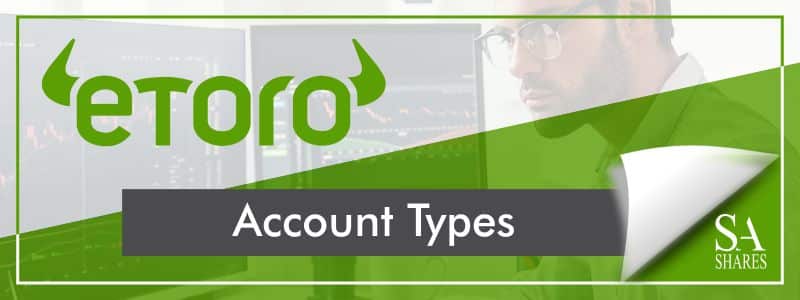eToro is widely recognized as a leading social trading platform, integrating traditional trading with innovative social features such as copy trading and social feeds. This chapter provides an overview of the eToro Account Types available, catering to a range of traders from beginners to experienced investors.
Overview of eToro as a Trading Platform
eToro distinguishes itself with a user-friendly interface and a focus on making trading accessible to anyone, anywhere. Here’s what makes eToro stand out:
1. Social Trading Capabilities
eToro pioneered the concept of social trading, which allows users to observe the trading behaviors of their peers and, crucially, to copy trades from successful traders automatically. This feature democratizes trading by allowing less experienced traders to benefit from the strategies of more seasoned market participants.
2. Wide Range of Instruments
The platform offers a variety of trading instruments, including stocks, forex, cryptocurrencies, ETFs, and commodities, enabling traders to diversify their portfolios within a single platform.
3. Regulatory Compliance
eToro operates under the regulation of several authorities, including the Cyprus Securities and Exchange Commission (CySEC), the Financial Conduct Authority (FCA) in the UK, and the Australian Securities and Investments Commission (ASIC), ensuring high levels of security and fairness.
4. Innovative Tools
Besides traditional trading tools, eToro offers features like the CopyPortfolios, which are managed portfolios that bundle various assets or top traders under a predetermined market strategy, further simplifying investment choices for users.
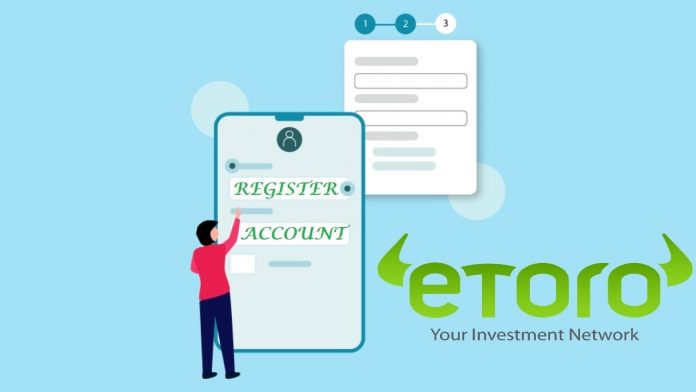
eToro Account Types
eToro caters to a diverse client base by providing different types of accounts, each designed to meet specific needs and objectives:
1. Retail Account
The standard account type for most traders on eToro, offering access to all the trading instruments, social trading features, and professional tools available on the platform. Retail account holders can engage in trading with leverage and participate in copy trading.
2. Professional Account
For more experienced traders who can meet certain criteria, eToro offers a professional account which comes with higher leverage and certain new capabilities but fewer regulatory protections. Traders must prove a significant trading volume and financial industry experience to qualify.
3. Demo Account
Ideal for beginners, the demo account provides a risk-free environment with virtual money. Traders can practice trading strategies, use the platform’s tools, and learn to navigate the markets without risking actual capital.
4. Islamic Account
Compliant with Sharia law, this account does not involve Riba (interest). This account type is significant for traders of the Islamic faith who are looking for a Halal trading environment.
5. Corporate Accounts
Designed for legal entities looking to trade with a corporate structure, these accounts provide all the benefits of eToro but are tailored to meet the needs of corporations rather than individual traders.
By offering these diverse account types, eToro ensures that a wide range of financial actors, from novice traders experimenting with a demo account to seasoned professionals and corporate entities, can find suitable trading solutions. This flexibility paired with innovative social trading makes eToro a unique and popular choice in the online trading community. # Setting Up an eToro Account
Opening an account with eToro is a straightforward process designed to be user-friendly while complying with regulatory standards to ensure security and fairness. This guide will walk you through the steps to set up an eToro account, including initial requirements and the verification process.
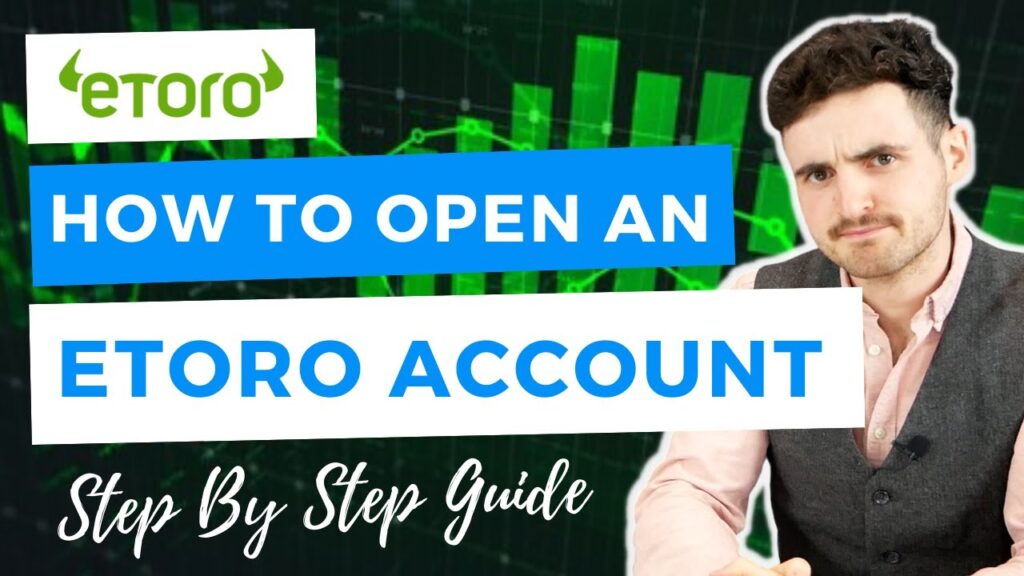
Step-by-Step Guide to Opening an eToro Account
Step 1: Registering Your Account
Action Required:
- Visit the eToro Website: Go to eToro’s official website.
- Sign Up: Click on the ‘Join Now’ or ‘Sign Up’ button.
- Fill Out the Registration Form: Provide your personal details such as your full name, email address, and phone number. You will also need to create a username and a password.
Tips:
- Ensure that the information you provide matches your legal documents to avoid issues during verification.
Step 2: Completing Your Profile
Action Required:
- Profile Information: Complete your profile by entering additional information such as your address, date of birth, and trading experience.
- Questionnaire: Fill out a questionnaire that assesses your trading knowledge and risk tolerance. This is a regulatory requirement to ensure suitability for trading.
Tips:
- Be honest about your trading experience as it helps eToro to provide you with appropriate guidance and tools.
Step 3: Account Verification
Action Required:
- Identity Verification: Upload a copy of your government-issued ID, such as a passport or driver’s license.
- Address Verification: Provide a recent utility bill or bank statement that shows your name and address.
Tips:
- Ensure your documents are clear and fully visible to avoid delays in the verification process.
- Verification may take a few days depending on the volume of applications being processed.
Step 4: Depositing Funds
Action Required:
- Access the Deposit Section: Once your account is verified, go to the ‘Deposit Funds’ section.
- Choose Your Deposit Method: Select from available payment methods including credit cards, bank transfers, e-wallets like PayPal, or wire transfers.
- Enter Deposit Amount: Choose how much money you want to deposit based on eToro’s minimum deposit requirements, which can vary by region.
Tips:
- Check for any deposit bonuses that might apply to your first deposit to take advantage of additional funds.
Step 5: Start Trading
Action Required:
- Navigate the Platform: Explore the trading platform to familiarize yourself with its features and tools.
- Begin Trading: Start trading by selecting assets to trade, executing trades, or copying trades using eToro’s CopyTrader system.
Tips:
- Consider starting with a demo account to practice trading strategies without financial risk.
Additional Considerations
- Regulatory Compliance: eToro complies with multiple financial regulatory standards, which means that following these steps closely is crucial for a successful account setup.
- Security Measures: Always ensure that you are on the legitimate eToro website to avoid phishing attempts.
Setting up an eToro account is designed to be as smooth and efficient as possible. By following these detailed steps and tips, you can start your trading journey on a strong footing, equipped with the tools and knowledge to navigate the trading environment effectively.

Retail Account Features on eToro
The retail account is the most common type of account used by individual traders on eToro. It’s designed to cater to a broad spectrum of traders, from beginners to experienced investors, providing a balance of user-friendly features, risk management tools, and access to a wide range of financial instruments. This chapter provides a detailed exploration of the retail account, discussing its features, benefits, and limitations.
Features of the Retail Account
1. Access to a Wide Range of Markets
Retail account holders can trade a variety of instruments including stocks, forex, cryptocurrencies, commodities, indices, and ETFs. This diversity allows traders to explore different markets and diversify their investment portfolios directly from one platform.
2. Social Trading Capabilities
One of eToro’s standout features is its social trading platform where traders can:
- Copy Trades: Users can automatically replicate the trading actions of other successful traders.
- Follow and Interact: Traders can follow and interact with other investors, share trading insights, and discuss market developments.
3. Leverage and Margin Trading
Retail accounts have access to leverage, which varies by asset class:
- Stocks and ETFs: Up to 5x leverage.
- Forex: Up to 30x leverage for major currency pairs.
- Cryptocurrencies: Up to 2x for retail clients.
Leverage allows traders to open larger positions than their existing capital would otherwise permit, increasing potential returns but also enhancing risks.
4. Educational Resources
eToro provides its retail account users with access to an extensive range of educational materials, including:
- Live Webinars
- Trading Videos
- Guides and Articles
These resources are beneficial, especially for new traders looking to deepen their understanding of various trading concepts and strategies.
Benefits of the Retail Account
1. Regulatory Protection
Retail traders benefit from high levels of regulatory protection, including negative balance protection, which ensures traders do not lose more money than they have deposited in their accounts.
2. Risk Management Tools
The platform offers advanced risk management tools, such as stop loss and take profit options, which are crucial for effective trading and capital preservation.
3. Demo Account Access
Retail account holders can also access a demo account loaded with virtual funds. This feature is particularly useful for practicing trading strategies in a risk-free environment before committing real money.
Limitations of the Retail Account
1. Restricted Leverage
Due to regulatory protections designed to minimize risks for retail traders, leverage is restricted compared to what is available under professional accounts. While this reduces risk, it also limits potential gains from trading activities.
2. Market Accessibility
While retail accounts offer a wide range of markets, they may not include certain advanced financial instruments that might be available to professional or institutional traders.
3. Simpler Reporting Tools
Compared to professional accounts, the reporting and analytical tools available to retail traders might be less comprehensive, which can affect those who rely heavily on analytics for their trading decisions.
In summary, the retail account on eToro offers a balanced approach to trading, providing sufficient tools, resources, and protection for everyday investors. It is designed to be accessible and protective, ensuring that traders can engage with global markets with a degree of security and support. However, traders looking for higher leverage or more sophisticated tools might consider qualifying for a professional account, which comes with its own set of criteria and risks.
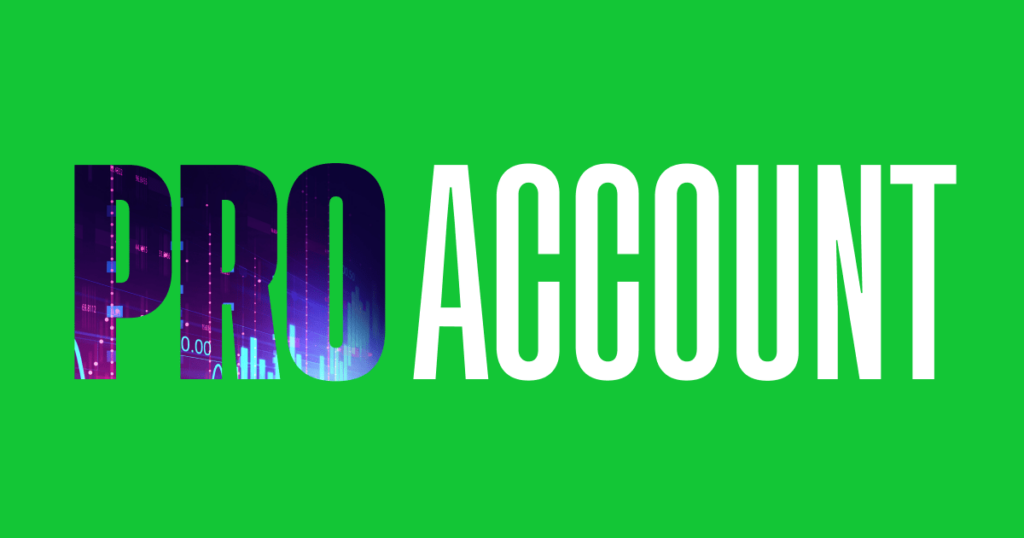
Professional Account Criteria and Benefits on eToro
While eToro’s retail accounts offer a broad array of features suitable for most individual traders, the platform also provides professional accounts designed for more experienced traders who can meet specific criteria. This chapter explains the differences between professional and retail accounts, outlines the requirements for qualifying as a professional trader on eToro, and discusses the advantages and enhanced features available to professional account holders.
Differentiating Professional Accounts from Retail Accounts
Key Differences
- Leverage and Margin Requirements: Professional accounts on eToro can access higher leverage compared to retail accounts. This allows for larger positions and potentially greater profits, albeit at increased risk.
- Risk Protections: Professional accounts have some reduced regulatory protections. For example, while retail clients benefit from mandatory negative balance protection (ensuring they cannot lose more than their account balance), this protection may not extend to professional clients.
- Product Access: Professional accounts may have access to additional trading products and advanced order types that are not available or are restricted under retail accounts.
Requirements for Qualifying as a Professional Trader
To be classified as a professional trader on eToro, applicants must meet at least two of the following criteria:
- Sufficient Trading Volume: The trader must have a significant trading volume in the financial markets, with at least 10 significant sized transactions per quarter over the last four quarters.
- Relevant Experience in the Financial Services Sector: The trader must have worked in the financial sector for at least one year in a professional position that requires knowledge of trading or the services involved.
- Financial Portfolio: The trader’s financial instrument portfolio, including cash deposits and financial instruments, exceeds €500,000.
Verification Process
- Application Submission: Traders must submit an application to be classified as professional clients, which includes providing evidence to meet the above criteria.
- Assessment and Approval: eToro will assess the application based on the provided documentation and criteria fulfillment. Approval is at the discretion of eToro’s compliance department.
Advantages and Enhanced Features for Professional Account Holders
Increased Leverage
Professional accounts benefit from significantly higher leverage options. For example, while retail traders might access up to 30x leverage on major forex pairs, professional traders could access higher levels, subject to current regulatory limits and eToro’s policies.
Access to More Trading Instruments
Professional traders may have the opportunity to trade a wider array of instruments, including exotic derivatives and possibly higher-risk instruments not available to retail traders.
Personalized Support
eToro typically offers more personalized support services to professional account holders, including dedicated account managers and tailored financial advice, reflecting the more complex needs and higher balances typical of such accounts.
Fewer Restrictions on Promotions
In some jurisdictions, regulations limit the bonuses and promotions that can be offered to retail traders. Professional traders may have fewer restrictions in this regard, allowing them access to more aggressive promotions and incentives.
Considerations
- Risk Exposure: With greater leverage comes greater risk. Professional traders should have strategies in place to manage these increased risks.
- Loss of Protections: Trading as a professional means losing certain retail protections, which must be clearly understood and accepted before upgrading an account.
Becoming a professional trader on eToro offers numerous benefits, particularly for those with the experience and financial capacity to handle more significant risks and opportunities. However, it is crucial for traders to understand the increased responsibilities and risks associated with a professional trading account before making the transition.
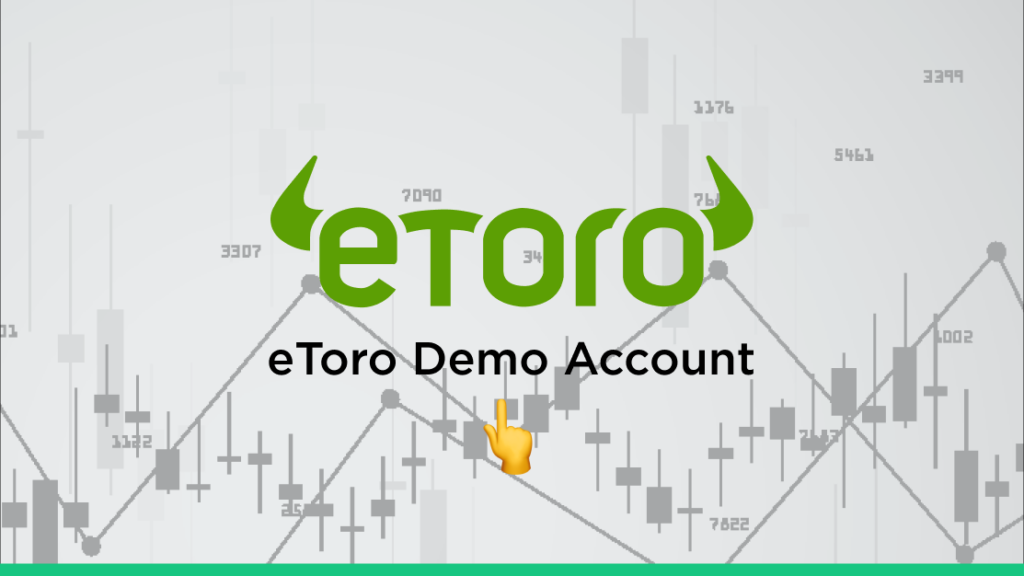
Demo Account and Its Utilization on eToro
Demo accounts are an essential tool for both novice and experienced traders, offering a risk-free environment to develop and test trading strategies without the threat of financial loss. This chapter explores the importance and benefits of using a demo account on platforms like eToro and provides tips on how to effectively utilize such accounts for practice and strategy development.
Importance of Using a Demo Account
Risk-Free Learning
The primary importance of a demo account is that it allows traders to engage with financial markets without risking real money. This is especially crucial for beginners who are not yet familiar with the dynamics of trading.
Strategy Testing
For more experienced traders, demo accounts provide a valuable platform to test new strategies and tools without altering their real investment portfolio. This can be instrumental in refining techniques before they are executed in live markets.
Understanding Market Conditions
Demo accounts offer real-time market conditions, enabling traders to gain insights into market behaviors and how different factors affect their trades without any financial consequences.
Benefits of Using a Demo Account on eToro
Simulated Social Trading Environment
eToro’s demo account replicates the social trading environment, allowing users to practice copying other traders and using social trading tools like the news feed and various social graphs.
Access to All Trading Instruments
eToro provides access to all the same assets as real accounts, including stocks, cryptocurrencies, forex, and more. This comprehensive access helps users experience the breadth of options available.
Educational Resources
Coupled with eToro’s extensive educational resources, a demo account helps reinforce learning by allowing traders to immediately apply the concepts they learn in tutorials, webinars, and other educational materials.
Tips on Effectively Using a Demo Account for Practice and Strategy Development
1. Treat it Like Real Money
To maximize the benefit of a demo account, treat the virtual money as if it were real. This approach helps develop trading discipline and realistic expectations about trading outcomes.
2. Set Realistic Goals
Define what you want to achieve with your demo trading. Whether it’s testing a new strategy, getting used to the platform’s tools, or understanding a particular market, setting goals can help focus your learning experience.
3. Keep a Trading Journal
Document your trades, strategies, and results. Keeping a journal of your demo trading activity can help you analyze your decisions and strategies. Reflect on what works and what doesn’t, and why certain trades had specific outcomes.
4. Experiment Freely
Since the risk is null, use this opportunity to experiment with different strategies and instruments. Explore areas you are less familiar with, like unfamiliar markets or advanced trading tools, to broaden your trading skills.
5. Use Real-Time Data to Learn
The fact that demo accounts mirror real market conditions provides a significant advantage. Use this feature to understand how macroeconomic events, news updates, and market sentiments affect your trading strategies.
6. Transition Gradually to a Real Account
Once you feel confident in your trading ability on the demo account, consider transitioning to a real account gradually. Start with smaller amounts and scale up as you gain more comfort and success.
In summary, a demo account is a powerful tool for enhancing your trading knowledge and skills. By using it thoughtfully, you can develop a solid foundation that prepares you for successful real-world trading. Whether you are just starting out or looking to sharpen your skills, the demo account is an invaluable component of your trading education and preparation.
Islamic Account Compliance and Features on eToro
Islamic accounts, also known as swap-free accounts, are designed to comply with Sharia law, which prohibits interest (Riba). These accounts cater to Muslim traders who wish to participate in the financial markets without compromising their religious beliefs. This chapter provides an overview of the Islamic account option on eToro, highlighting its specific features, such as interest-free trading and immediate transaction settlements.
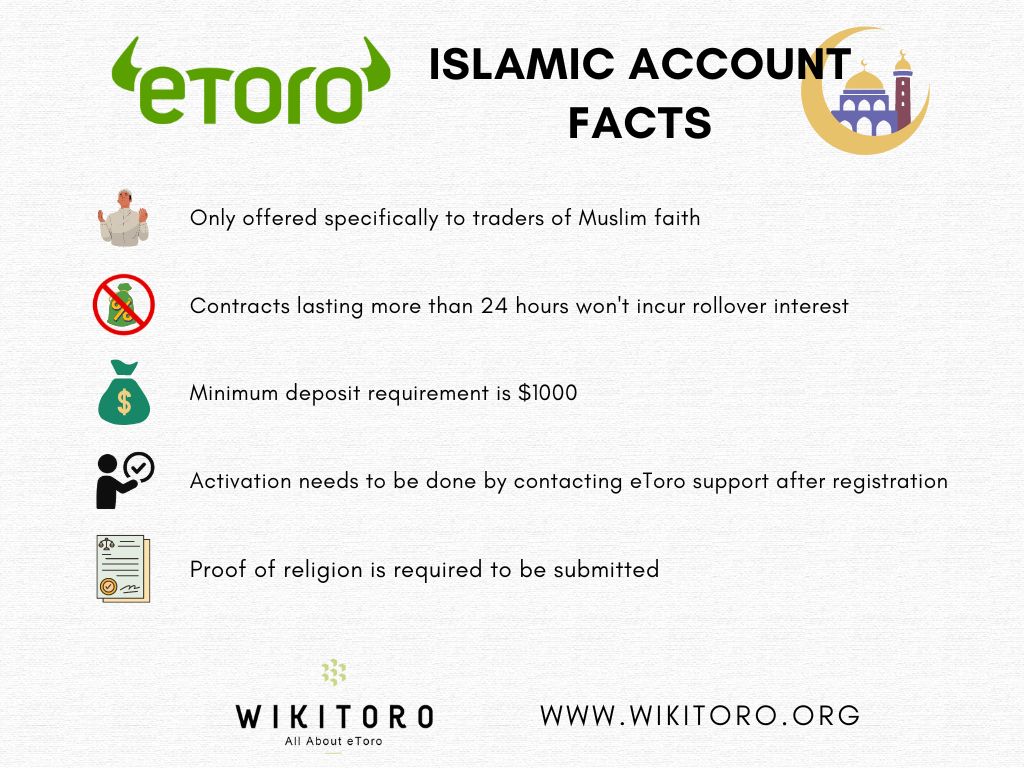
Overview of Islamic Accounts
Compliance with Sharia Law
Islamic accounts are structured to ensure that all aspects of trading, including the financial transactions and the types of instruments traded, are compliant with Islamic principles. The main focus is on eliminating:
- Riba (Interest): Any form of interest on trades is prohibited.
- Gharar (Uncertainty): Highly speculative trades are avoided.
- Haram Activities: Investments in industries like alcohol, gambling, and pork-related products are not permitted.
Who Can Use Islamic Accounts?
These accounts are intended for traders who need to ensure that their investment activities align with the ethical and moral principles of Islam. While primarily catering to Muslim traders, anyone interested in an ethical trading framework can request to open an Islamic account.
Specific Features of Islamic Accounts on eToro
1. Interest-Free Trading
Islamic accounts on eToro do not accrue overnight or rollover interest on positions held open overnight, addressing the prohibition of Riba. Instead of the common swap fees applicable in regular accounts, Islamic accounts might charge a fixed administration fee that is not tied to interest and is agreed upon in advance.
2. Immediate Transaction Settlements
Transactions within Islamic accounts are executed immediately, ensuring there is no delay, which could lead to uncertainty or speculation (Gharar). This feature is crucial for maintaining compliance with Sharia law, which demands that transactions be prompt and without ambiguity.
3. No Commissions on Stock Trading
Following the principle of no hidden charges or usury, Islamic accounts on eToro typically offer commission-free stock trading. This feature aligns with the transparency and fairness promoted by Islamic finance.
4. Halal Certification
To ensure compliance, the products and practices related to Islamic accounts are regularly reviewed and certified by competent Islamic finance authorities or a Sharia board. This certification process helps in maintaining the trust and integrity of the trading environment.
Benefits of Islamic Accounts
- Ethical Trading: Provides a platform for traders to invest in a manner consistent with ethical practices and principles.
- Transparency: Fees and charges are clear and upfront, with no hidden interest payments, which is a critical aspect of fair trade practices in Islam.
- Diverse Investment Opportunities: Even within the constraints of Islamic law, traders have access to a broad range of trading instruments, including stocks, commodities, and indices, ensuring ample investment opportunities.
Considerations and Limitations
- Account Approval: Traders must typically undergo a verification process to ensure their eligibility for an Islamic account, which may require documentation and a detailed application.
- Limited Financial Instruments: Some financial instruments, especially those involving excessive risk or companies dealing in prohibited industries, are not accessible through Islamic accounts.
Islamic accounts on eToro offer a unique solution for traders looking to reconcile their financial activities with religious principles. They embody a commitment to ethical trading and provide a viable option for a significant segment of the global trading community.
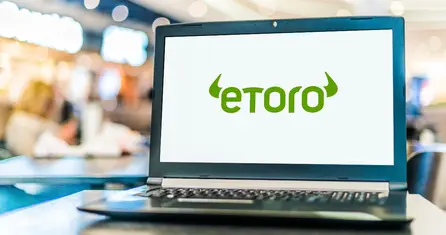
Corporate Accounts for Businesses on eToro
Corporate accounts on eToro are designed to cater to the trading needs of legal entities, such as businesses, corporations, and other institutional clients. This chapter provides an overview of corporate accounts, including the application process and the benefits tailored for corporate use.
Understanding Corporate Accounts
Legal Entity Trading
Corporate accounts allow businesses to engage in trading activities on behalf of their legal entity. This separation between personal and business trading is essential for compliance, accounting, and risk management purposes.
Enhanced Risk Management
Corporate accounts often come with additional risk management features and reporting capabilities to accommodate the larger scale and complex needs of institutional trading.
Application Process for Corporate Accounts
Documentation Requirements
When applying for a corporate account, businesses typically need to provide various documents to verify their legal status and ownership, including:
- Certificate of Incorporation: Proof of the company’s legal formation.
- Memorandum and Articles of Association: Details of the company’s structure and governance.
- Proof of Address: Documentation verifying the company’s registered address.
- Authorized Signatories: Information about individuals authorized to act on behalf of the company.
Compliance Checks
eToro conducts thorough compliance checks on corporate account applicants to ensure they meet regulatory requirements and internal policies. This process may include anti-money laundering (AML) checks and verification of the company’s legitimacy.
Account Approval
Once all required documentation is submitted and verified, eToro’s compliance team reviews the application. Upon approval, the corporate account is activated, and the company gains access to the trading platform.
Benefits of Corporate Accounts
Institutional Support
Corporate accounts receive dedicated support from eToro’s institutional team, ensuring timely assistance and tailored solutions to meet the company’s trading needs.
Advanced Trading Tools
Institutional clients often have access to advanced trading tools and features that are not available to individual retail traders. These tools may include customizable analytics, risk management solutions, and direct market access (DMA) platforms.
Enhanced Reporting and Analysis
Corporate accounts benefit from comprehensive reporting and analysis tools, allowing businesses to track their trading performance, manage risk, and make informed decisions based on real-time data.
Regulatory Compliance
eToro ensures that corporate accounts comply with all relevant regulatory requirements, providing peace of mind to businesses operating in a regulated environment.
Considerations
- Legal Obligations: Businesses must adhere to all applicable laws and regulations governing trading activities, including tax reporting and compliance with securities laws.
- Risk Management: Corporate accounts should implement robust risk management policies and procedures to safeguard company assets and mitigate trading risks.
- Ongoing Monitoring: eToro may conduct periodic reviews of corporate accounts to ensure ongoing compliance with regulatory requirements and internal policies.
Corporate accounts on eToro offer businesses a platform to engage in trading activities while adhering to legal and regulatory obligations. With dedicated support, advanced trading tools, and enhanced reporting capabilities, corporate clients can effectively manage their investments and achieve their financial objectives.

Comparative Analysis of eToro Account Types
eToro offers a variety of account types to cater to the diverse needs of its users, from novice traders to professional investors and corporate entities. This chapter provides a detailed comparative analysis of the different eToro account types, highlighting key differences in leverage, features, and applicable fees.
Overview of eToro Account Types
eToro primarily offers these account types: Retail, Professional, Demo, Islamic, and Corporate. Each account type is tailored to different user needs and regulatory requirements.
Retail Account
Features
- Access to a wide range of trading instruments including stocks, cryptocurrencies, forex, commodities, and indices.
- Social trading capabilities, including CopyTrader and social news feeds.
- Educational resources such as webinars and trading videos.
Leverage
- Up to 30x for major forex pairs, up to 5x for stocks, and up to 2x for cryptocurrencies.
Fees
- No commission for stock trading.
- Overnight and weekend fees for CFD positions.
- Withdrawal and inactivity fees apply.
Professional Account
Features
- All the features of the Retail account plus higher leverage.
- Access to professional customer support and market analysis.
Leverage
- Significantly higher than Retail accounts, subject to individual review based on the trader’s experience and trading volume.
Fees
- Similar fee structure to the Retail account, but professional traders may negotiate better terms based on their trading volume.
Demo Account
Features
- Risk-free trading with virtual money.
- Access to all trading platforms and tools available to Retail accounts.
Leverage
- Same leverage options as Retail accounts to simulate real trading conditions.
Fees
- No real fees apply as the account uses virtual money.
Islamic Account
Features
- Swap-free trading that complies with Sharia law.
- No interest on contracts lasting longer than 24 hours, no rollover interest.
Leverage
- Same as Retail accounts, ensuring that the trading conditions comply with Islamic finance principles.
Fees
- No rollover charges. However, there may be administration fees or higher spreads to compensate for the lack of swap fees.
Corporate Account
Features
- Tailored solutions for businesses and large investors.
- Advanced reporting and risk management tools.
- Dedicated account manager and institutional support.
Leverage
- Customizable based on the business’s needs and risk management policies.
Fees
- Potential for customized fee structures based on transaction volume and account size.
- Corporate accounts might incur additional fees for premium services and functionalities.
Key Differences
- Accessibility and Requirements: Retail and Islamic accounts are generally easier to open with fewer requirements than Professional and Corporate accounts, which require proof of trading experience or business legitimacy.
- Leverage Options: Professional accounts offer the highest leverage, followed by Retail and Islamic accounts. Demo accounts simulate the Retail environment.
- Fee Structure: While all accounts share a basic fee structure, Professional and Corporate accounts might have options for reduced fees based on activity levels. Islamic accounts have unique fee adjustments to comply with religious principles.
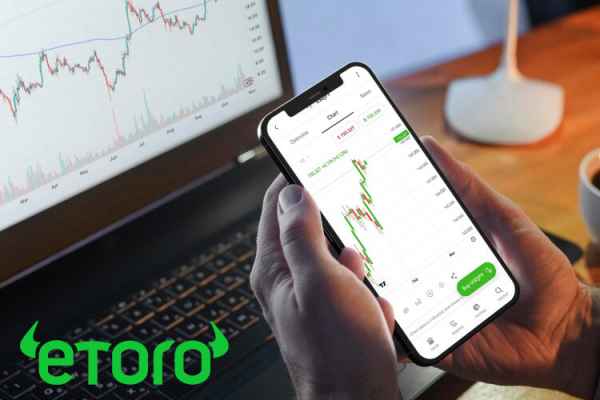
Upgrading and Switching Account Types on eToro
On eToro, traders have the option to upgrade or switch between different account types based on their evolving trading needs, experience, and compliance with specific account criteria. This chapter discusses how and when to consider upgrading or switching account types, outlines the necessary steps, and highlights the potential implications of changing account status.
When to Consider Upgrading or Switching Account Types
1. Increased Trading Experience
If you’ve gained significant trading experience and meet the eligibility criteria for a professional account, you might consider upgrading to access higher leverage and additional features.
2. Change in Trading Strategy
Switching to an account type that better suits your new trading strategy or financial goals, such as moving to an Islamic account for swap-free trading, might be necessary as your approach evolves.
3. Need for Advanced Tools and Services
Corporate entities or traders who require more sophisticated tools and personalized support may consider switching to a corporate or professional account.
4. Compliance with Financial or Religious Principles
Traders who wish to ensure their trading activities comply with Sharia law might switch to an Islamic account.
Steps to Upgrade or Switch Account Types
Upgrading to a Professional Account
1. Eligibility Check
- Ensure you meet at least two of the three criteria required for a professional account: significant trading volume, relevant financial industry experience, or a sizable financial portfolio.
2. Application Submission
- Complete the professional account application form on eToro, providing all necessary documentation and evidence to support your eligibility.
3. Review and Approval
- eToro will review your application to ensure it meets all requirements. This process may include additional checks or requests for information.
Switching to an Islamic Account
1. Request Initiation
- Contact eToro customer support to request a switch to an Islamic account. This might require filling out a form or providing a statement of faith.
2. Account Conversion
- eToro will review your request and, upon approval, convert your existing retail account to an Islamic account, ensuring it complies with Sharia law.
Upgrading to a Corporate Account
1. Preparation of Documentation
- Gather all required corporate documentation, including incorporation certificates, proof of address, and details of authorized signatories.
2. Submission and Verification
- Submit the documents for verification and fill out the corporate account application form. eToro’s corporate team will review the submission to ensure compliance and suitability.
3. Activation
- Once approved, your corporate account will be activated, granting access to tailored trading conditions and tools.
Potential Implications of Changing Account Status
1. Adjustment Period
- Adapting to new features, tools, and the trading environment of the new account type may require an adjustment period.
2. Risk Exposure
- Upgrading to an account with higher leverage, like a professional account, increases both potential returns and potential risks.
3. Regulatory Changes
- Switching account types, especially to or from a professional account, may alter the regulatory protections you receive.
4. Tax and Compliance Obligations
- Different account types may have different tax implications and reporting requirements, particularly when switching to or from corporate accounts.
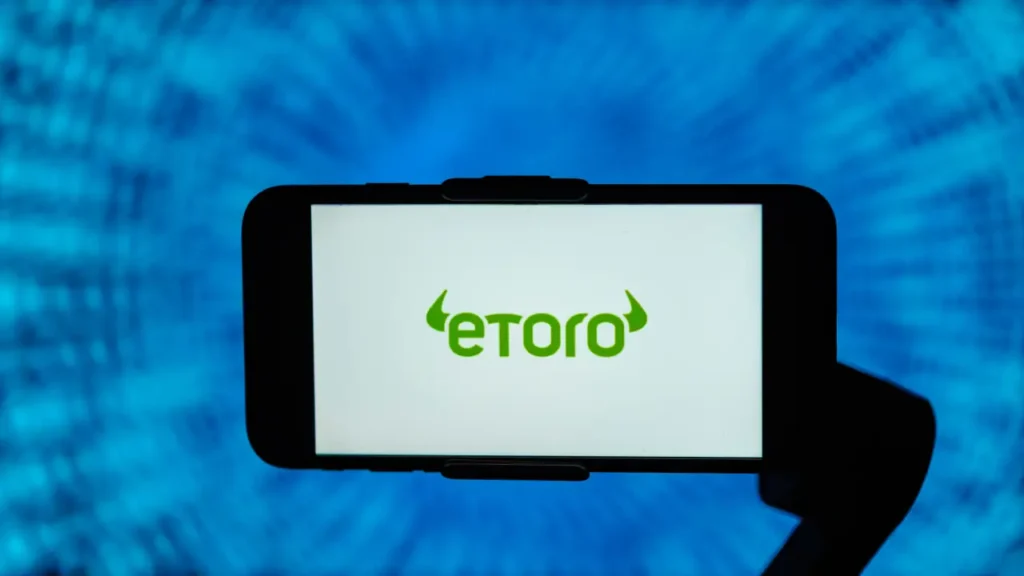
Common Questions and Troubleshooting for eToro Account Types
Navigating through the various account options and managing your account on eToro can occasionally raise questions or issues. Here, we address some frequently asked questions regarding eToro account types and provide tips for troubleshooting common issues related to account management.
Frequently Asked Questions
1. What are the key differences between a retail and a professional account on eToro?
- Leverage: Professional accounts have access to higher leverage compared to retail accounts.
- Risk Protections: Retail accounts benefit from protections like negative balance protection, which are not as stringent in professional accounts.
- Market Access: Professional accounts might have access to additional instruments and markets not available to retail traders.
2. Can I switch from a demo account to a real money account on eToro?
- Yes, switching from a demo to a real account is straightforward. You need to complete your profile, verify your identity, and deposit funds to start trading with real money.
3. How do I qualify for an Islamic account on eToro?
- To qualify for an Islamic account, you must first open a regular account, verify your identity, and then request an Islamic account conversion. This might require providing additional documentation or statements of faith.
4. What documents are required to open a corporate account on eToro?
- Typical documents include your company’s Certificate of Incorporation, Memorandum and Articles of Association, proof of company address, and identification documents for directors and shareholders holding a significant percentage.
5. Are there any fees associated with maintaining different types of accounts on eToro?
- While eToro offers no-commission stock trading, fees such as withdrawal fees, inactivity fees, and overnight fees for CFD positions may apply. It’s important to review the specific fee structure for your account type.
Troubleshooting Common Issues
1: Account Verification Delays
- Solution: Ensure all documents submitted are clear and valid. Follow up via customer support if verification takes longer than the expected timeframe.
2: Difficulty Accessing Certain Features or Markets
- Solution: Check if there are any restrictions based on your account type. Some features might be limited to certain account types or due to regulatory restrictions in your region.
3: Errors During Fund Deposit or Withdrawal
- Solution: Confirm that all entered information is correct, especially payment details. Ensure your account meets any minimum deposit requirements and check if there are funds available for withdrawal. Contact customer support if issues persist.
4: Transitioning from Demo to Real Account Not Reflecting
- Solution: Make sure you have completed all necessary steps for opening a real account, including depositing actual funds. Sometimes logging out and then back into the platform can help refresh your account status.
5: Concerns Over Swap Fees in an Islamic Account
- Solution: If you believe there have been errors in fee charges according to Sharia law compliance, review the account terms again and discuss the specifics with customer support to resolve any discrepancies.
Managing your eToro account effectively involves understanding the specific features and requirements of your chosen account type. By keeping informed and utilizing eToro’s customer support when needed, you can address and troubleshoot issues efficiently, ensuring a smooth trading experience.

